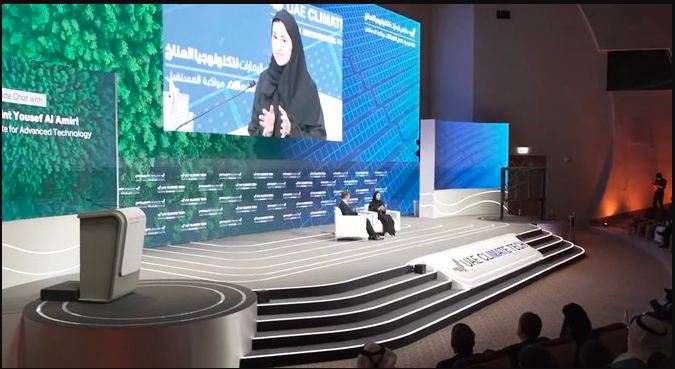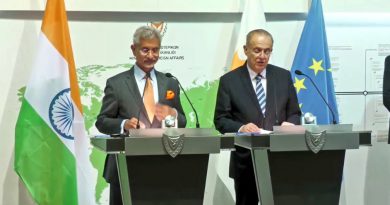Ahead to COP28, industry leaders gather in Abu Dhabi to explore green hydrogen
Abu Dhabi – Energy executives were gathered in Abu Dhabi by the UAE’s Ministry of Industry and Advanced Technology to discuss the biggest obstacles to the adoption of green hydrogen and the expansion of the economy that surrounds it.
According to the Emirates News Agency, the conversation session took place during the UAE Climate Tech forum, which was held from May 10 to 11 in advance of COP28.
1,000 global officials, CEOs, experts, technology pioneers, and investors participated in the meeting to help speed decarbonization through cutting-edge technologies and promising economic possibilities.
The participants in the dialogue, titled “Hydrogen Economy: The Unanswered Questions,” talked about the key difficulties that exist along the entire hydrogen value chain, including those related to production, storage, transportation, and application, as well as the technological developments necessary to open up the associated economy.
Participants debated technologies, rules, and policies as they discussed the significance of hydrogen in the energy transition. Discussions also included various methods of hydrogen production.
The delegates were informed that clean hydrogen production using carbon capture technologies and renewable energy sources would eventually gain market share.
“Hydrogen is one of the key fuels that will power the energy transition and help us achieve carbon neutrality by 2050,” said Sarah Al Amiri, minister of state for public education and cutting-edge technology.
“But there are multiple challenges across the entire hydrogen value chain that we must address.
“The UAE is positioning itself as a global leader in hydrogen technology as part of its economic and energy diversification strategies, and we understand the importance of working with partners to unlock the full potential of this high-growth sector.
In line with the UAE Energy Strategy 2050 and the UAE Net Zero by 2050 Strategic Initiative, “We are committed to working with international partners and fostering collaborations among public and private sector stakeholders, locally and globally, to remove barriers to the hydrogen economy.
“Under this commitment, we have introduced initiatives such as the Technology Transformation Program and the Emirates Research and Development Council to stimulate the development of enabling technologies that will help scale hydrogen technology.
“These initiatives will increase R&D spending, encourage cross-border innovation collaboration, and hasten the necessary technological advancements. We acknowledge the importance of platforms like UAE Climate Tech for a comprehensive and cooperative global energy transition.
“We will continue providing these platforms to supplement our investments in renewable and low-carbon energy sources, in line with the Paris Agreement, and to help boost sustainable economic growth.”
The delegates also addressed policies and incentives, including the role of policymakers and the importance of collaboration and innovation. A whitepaper based on the discussion and incorporating recommendations will be issued ahead of COP28.
The UAE aspires to grab 25 percent of the worldwide hydrogen fuel market by 2030 as part of its energy-mix and economic diversification objectives.
The country will invest AED 600 billion ($163.37 billion) in clean and renewable energy projects over the next three decades.



